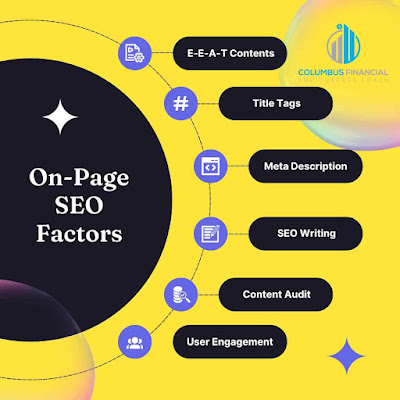Effective Affiliate Marketing Tips for E-Commerce
Affiliate marketing is a performance-based marketing strategy where businesses reward affiliates for promoting their products or services and driving traffic or sales through their referrals. It's a mutually beneficial arrangement where the merchant gains increased exposure and sales, while the affiliate earns a commission for successful referrals.
The merchant, also known as the advertiser or retailer, is the company that sells the products or services. They create an affiliate program to incentivize others to promote their products. An affiliate, also known as the publisher or partner, is an individual or entity that promotes the merchant's products or services through various marketing channels such as websites, blogs, social media, email, or other online platforms. In some cases, merchants may use an affiliate network or platform to manage their affiliate program. These platforms provide tools for tracking affiliate referrals, managing commissions, and facilitating payments between merchants and affiliates.
Merchants provide affiliates with unique tracking links, banners, product images, and other promotional materials to use in their marketing efforts. Affiliates earn a commission for each successful referral they drive to the merchant's website. Commissions can be based on various actions, such as clicks, leads, sales, or a combination of these factors. Affiliate tracking software is used to track the performance of affiliate referrals and attribute commissions to the appropriate affiliates. This ensures that affiliates are properly credited for their contributions.
Affiliates receive payment for their commissions according to the terms of the affiliate program. Payments may be made on a regular schedule (e.g., monthly) or when a certain threshold of earnings is reached. Affiliate marketing is a popular and effective way for businesses to expand their reach, drive sales, and increase revenue while offering affiliates an opportunity to monetize their online presence and marketing efforts.
Effective Affiliate Marketing Tips for E-Commerce:
Choose the Right Affiliates:
Look for affiliates whose audience aligns with your target market. Quality over quantity is key here; focus on affiliates with engaged audiences who are likely to be interested in your products.
Provide Valuable Resources:
Offer your affiliates the resources they need to effectively promote your products, such as high-quality banners, product images, and descriptions. The easier you make it for them to promote your products, the more likely they are to do so.
Offer Competitive Commission Rates:
Ensure your commission rates are competitive enough to attract top affiliates. Consider offering tiered commission structures or bonuses for high-performing affiliates to incentivize them further.
Track and Analyze Performance:
Use affiliate tracking software to monitor the performance of your affiliate marketing campaigns. Analyze key metrics such as click-through rates, conversion rates, and average order value to identify top-performing affiliates and optimize your campaigns accordingly.
Communicate Regularly:
Maintain open communication with your affiliates to keep them engaged and informed about new products, promotions, and upcoming campaigns. Regularly update them with relevant information and provide timely support when needed.
Create Compelling Content:
Encourage your affiliates to create high-quality, engaging content that resonates with their audience. This could include product reviews, tutorials, and how-to guides that showcase your products in action.
Incentivize Performance:
Offer performance-based incentives such as bonuses, exclusive deals, or increased commission rates for affiliates who meet or exceed their targets. This can motivate affiliates to put in extra effort to promote your products.
Optimize for Mobile:
Ensure that your website and affiliate resources are optimized for mobile devices, as many consumers shop and browse on smartphones and tablets. A seamless mobile experience will help maximize conversions from affiliate traffic.
Protect Your Brand:
Set clear guidelines for how affiliates should represent your brand and products to maintain consistency and integrity. Monitor affiliate activity regularly to ensure compliance with your brand standards and take action if necessary.
Test and Iterate:
Continuously test different strategies, offers, and promotional tactics to identify what works best for your e-commerce business. Use A/B testing to optimize landing pages, promotional materials, and calls to action for maximum effectiveness.
By implementing these tips, you can build a successful affiliate marketing program that drives traffic, increases sales, and grows your e-commerce business.
The Most Effective Way to Promote an E-Commerce Website
Promoting an eCommerce website effectively involves a combination of strategies to drive traffic, increase visibility, and ultimately generate sales. Here are some of the most effective ways to promote an eCommerce website:
Search Engine Optimization (SEO):
Content Marketing:
Create valuable and engaging content related to your products or industry. This could include blog posts, how-to guides, product reviews, videos, and infographics. Share this content on your website and social media channels to attract and engage your target audience.
Social Media Marketing:
Leverage social media platforms to promote your products and engage with your audience. Create a strong presence on platforms like Facebook, Instagram, Twitter, LinkedIn, and Pinterest. Share product updates, behind-the-scenes content, user-generated content, and special promotions to encourage interaction and drive traffic to your website.
Email Marketing:
Build an email list of subscribers and send regular newsletters, product updates, and promotional offers to keep them engaged and encourage repeat purchases. Personalize your email campaigns based on customer preferences and behavior to increase relevance and effectiveness.
Paid Advertising:
Use pay-per-click (PPC) advertising platforms like Google Ads and social media advertising (e.g., Facebook Ads, Instagram Ads) to reach potential customers who are actively searching for products or browsing relevant content. Target specific demographics, interests, and behaviors to maximize the impact of your ads.
Influencer Marketing:
Partner with influencers, bloggers, and social media personalities who have a large and engaged following in your niche. Collaborate with them to promote your products through sponsored content, product reviews, giveaways, or affiliate partnerships.
Referral Programs:
Encourage satisfied customers to refer their friends and family to your website by offering incentives such as discounts, freebies, or loyalty points for successful referrals. This can help increase word-of-mouth marketing and drive new customer acquisitions.
Optimized User Experience (UX):
Ensure your website is user-friendly, mobile-responsive, and optimized for fast loading speeds. Provide clear navigation, intuitive search functionality, high-quality product images, detailed descriptions, and an easy checkout process to enhance the overall shopping experience and reduce bounce rates.
Remarketing:
Implement remarketing campaigns to re-engage visitors who have previously visited your website but did not make a purchase. Use targeted ads to remind them of products they viewed or abandoned in their shopping cart, encouraging them to return and complete the purchase.
Partnerships and Collaborations: Explore partnerships with complementary businesses or industry influencers to cross-promote each other's products or collaborate on co-branded marketing campaigns. This can help expand your reach and tap into new customer segments.
By implementing these strategies strategically and consistently, you can effectively promote your eCommerce website, drive traffic, and increase conversions to grow your online business.





.png)
.png)
.png)

0 Comments